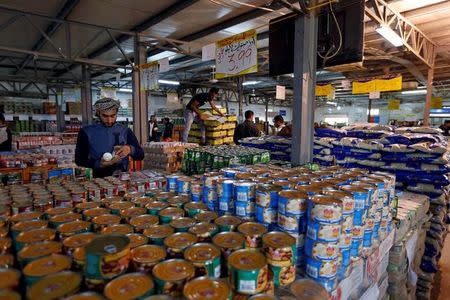At Zaatari camp supermarket, Syrian refugees shop with blink of an eye

MAFRAQ, Jordan (Reuters) - At a supermarket cash register in Zaatari refugee camp, a shopper looks into a small screen as a device scans her iris. The machine checks the customer's identity before allowing her to complete the purchase without cash, e-cards or vouchers. Some 76,000 Syrian refugees at the sprawling camp in Jordan can now shop this way at Zaatari supermarkets thanks to a new payment system introduced by the United Nations World Food Programme (WFP) to make sure that aid goes to the right people. Once the iris scan is done, the device verifies the refugee's identity through the UNHCR's registration database, checks the relevant account at the bank and okays the purchase. WFP said last month it started using the system at Zaatari after a launch at Jordan's King Abdullah Park camp early this year. The same system was introduced in the Azraq camp in April. The U.N. agency says it is assisting more than half a million Syrian refugees who have fled the nearly six-year conflict in their home country for Jordan through the scanning system and an electronic voucher programme. The technology has drawn mixed reviews from camp residents, with some saying they could no longer send their younger children to run errands. Others like its convenience. "We no longer worry about losing the cards ... and only the person involved can use it," resident Yaser al-Sawaleh said. Many refugees complain U.N. agencies and donors have focused on costly projects that help improve security rather than bettering the lives of refugees by generating employment for many of the camps' youths. They complain donors are not doing enough to push Jordanian authorities to relax tough laws that could allow refugees to find legal work outside the camp where many are in virtual confinement. (Reporting by Reuters Television; Editing by Louise Ireland)

